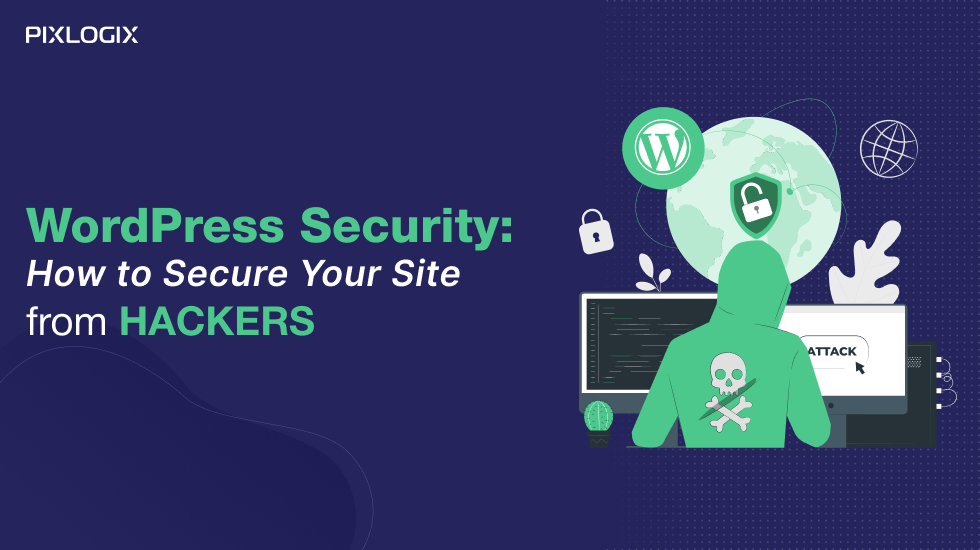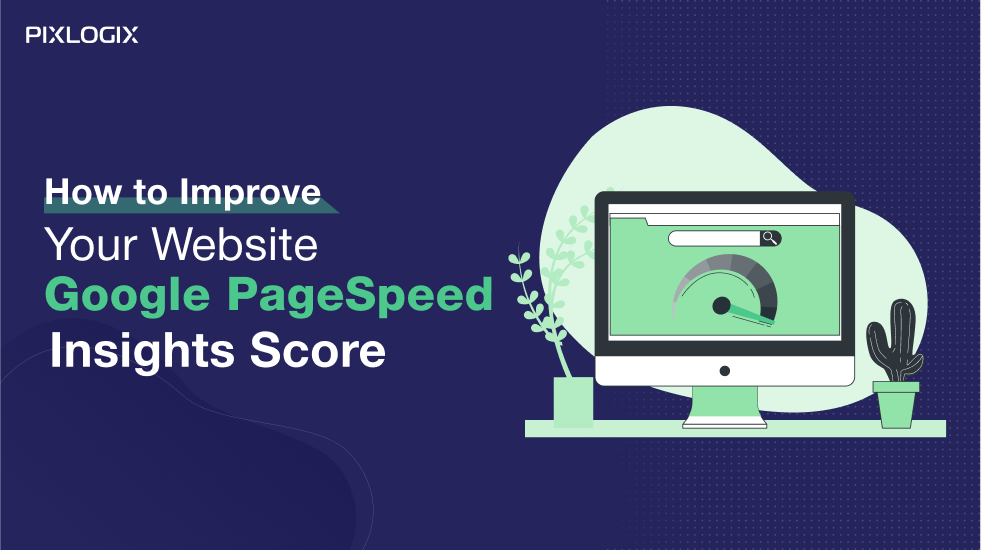21 Quick Tips to Safeguard your WordPress Website!

- Last Updated On July 30, 2024
- 10 min read
WordPress is a prominent name when it comes to web development technologies. It is an open-source platform that allows technical as well as non-technical professionals to develop websites. There are millions of WordPress websites online. However, the primary concern of every entrepreneur is security. And, of course! It is an open-source technology, which makes it vulnerable to cyber-attacks. Is that a fact? If yes, then how can you secure your WordPress tips website?
Well, WordPress is not just a web technology, but a brand in itself. Thus, it has no doubt added a wide range of plugins and extensions to secure your website. In this article, we’ll be going through-
21 Quick Tips to Safeguard your WordPress Website!
Install SSL and set up HTTPS:
Most probably, users will enter their personal information on your website that includes name, bank details, address, etc. To ensure that the data is secured, you need to install SSL (Secure Lockets Layer). This is the standard security measure that every online business has to adopt. In case, if you’ve installed SSL, then you have to configure WordPress to HTTPS. This can happen in the dashboard, Setting-General.
Keep updating your PHP:
Whenever you come across any new PHP version, make sure you install it and utilize that further. This will help you protect your website from hackers. To accomplish it, log in to your account on cPanel, and you’ll find all the updates. However, keep one thing in mind; your existing version should be compatible with the latest version.
Create backups and store in the cloud:
Suppose, if your website crashes or something happened to it rather than panic you can restore all the data from backups. This is why creating backups on a regular basis is very crucial. You can either go for a manual process with the help of custom WordPress development services or use WordPress plugins such as Updraft Plus and VaultPress.
Use secure passwords for authentication:
A secure password means it should include eight characters mandatory. Avoid keeping birthdates, personal data for your passwords; it increases the chances of theft internally. Your password should consist of capital and lower case letters, numbers, and at least one unique character. This may sound boring, but many businesses have already made this mistake and lose out their data to attackers.
Change your passwords often:
Making the trend of changing passwords can be of great use in the long-term. There top three reasons explaining why you should change your passwords every three-six months: When it comes to changing employee’s user passwords, it can significantly provide you better outcomes.
As employees share everything with their colleagues, they may share their passwords too, which will further become a security concern. If your users have a habit of using the same password, then hack from another website may put your business at stake. If you didn’t change your password for a long time now, it would be hacked by attackers using brute forces.
Update WordPress and plugins:
As we’ve mentioned above the importance of update, you need to update WordPress and plugins regularly. It will prevent your business from any cyber-attacks and secure your business in the long run.
Store your passwords safely:
Many entrepreneurs have the habit of storing their password in sticky notes, which can be risky. You should never keep your passwords openly or in an unencrypted format. The online world is unpredictable, and nobody knows what will happen next. Therefore, store your passwords encrypted files to stay ahead of hackers.
Use plugins as less as possible:
When you utilize minimal plugins, hackers get the least opportunities to gain access to your website and exploit the vulnerabilities. The WordPress platform itself is considered as the most secure platform than investing in third-party plugins.
Don’t use various plugins for one purpose:
Take a look at the previous tip that explains why you should use minimal plugins. A plugin, maybe incompatible with your website, which will gradually slow down your site as well as harm its security.
Avoid installation of outdated or unreliable plugins:
Whenever you witness the need for downloading plugin, do check its rating and the last update date. This will help you verify its reliability. If you find the rating low and the update was made a year before, then don’t go for it.
Avoid taking screenshots of your passwords:
Whenever you take a screenshot from any app, it automatically gets updated on the servers of that online brand. And if you take screenshots, it can put your business at stake. And hacker who can write a short script can easily download the screenshots.
Don’t share your screen during video calls:
Top cyber-security experts suggested that Skype is the biggest threat to your data. The more data you transfer through this platform, the more it will be intercepted by others. And the most damage can happen when you share video calls via Skype.
Don’t public unsecured Wi-Fi:
Using a local Wi-Fi network to log in to your business account is not at all safe. Public Wi-Fi hotspots are often used by hackers to acquire all the data you transfer using that network. We suggest you avoid such connections and use VPN networks.
Be cautious while using third-party scripts:
When you hire a WordPress Development Company in India for WordPress web development, then you can stay rest assured. These service providers don’t utilize third-party scripts at all. Experts suggest entrepreneurs adhere to this rule to prevent their business from mishaps.
Use a trustworthy antivirus:
Although you don’t save files or documents on devices, viruses can disrupt your operating system. Most of the viruses have only one aim, cause damage to users. Since viruses are keyloggers, they can easily record whatever you’re typing.
Optimize blocklists:
One has the flexibility to block IP addresses from a particular region or country. All you need to do is download any blocklists online that consists of shell-scripting and load block rule with IP tables afterward.
Make sure to set-up two-factor authentication:
You can easily secure the login access with this feature that enables two-factor authentication (TFA). If you’re already TFA-enabled, then you might know that it will ask for a one-time login passcode every time you log in to accounts.
Restrict access to admin pane based on IP address:
Managing access via IP address is one of the best decisions as it helps you determine, which devices/networks have access to your account. This feature is in your settings, and even now, you can see the currently allowed IP addresses.
Discover cloud and proxy solutions:
There are services like Sucuri CloudProxy, CloudFlare, and a lot more, which easily block unwanted IPs. It prevents such IPs from reaching your servers, which makes it very useful.
Use ModSecurity:
ModSecurity is a spectacular platform that helps you prevent unauthorized and brute force logins in your WordPress accounts. To add and operate this tool, you need to give it root-level access as well as some input from your web host.
Explore Fail2Ban:
This tool runs in the background and apache-generated logfiles, adding firewall rules upon specific events. In this, a regular expression filter is used, and if it takes 5times within the 5minutes, then the IP will be blocked in the next 60 minutes.
Ashish Tiwari
Ashish Tiwari is an SEO manager at Pixlogix Infotech Pvt. Ltd. bringing 8+ years of expertise in driving organic traffic and creating data-driven marketing strategies. With a deep understanding of business, marketing, and promotional tactics, he specializes in technical SEO, content optimization, and paid advertising. Ashish has helped businesses across e-commerce, SaaS, healthcare, and other industries achieve measurable growth. Known for his dedication and growth mindset, he has consistently delivered impactful results and achieved significant milestones in record time.
Related Post
Get in Touch Now!
Have a word with our expert consultants about your next project to get suggestive guidance & proposal.
Sales Inquiry
Chat with us about your project for a custom solution and quote.




